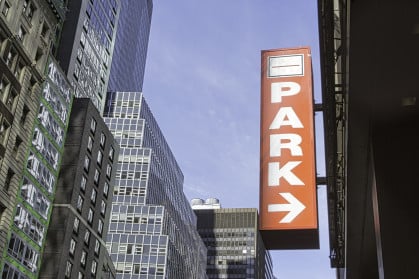3 steps to take if your co-op or condo commercial tenant goes rogue
- Take a look at your building’s bylaws and offering plan to get a sense of the scope of the violation
- Speak with the commercial unit owner’s board representative as soon as possible

A view of historic Tribeca buildings with ground floor retailers.
iStock
Commercial tenants can create lots of unexpected problems for the condo or co-op buildings they occupy.
Perhaps your building’s ground-floor restaurant extended its hours late into the night. Or the bodega downstairs morphed into an illegal pot shop. Or the ground floor cafe is cooking up a storm without proper ventilation, sending odors into the residences above.
If your building’s commercial tenant isn’t living up to your expectations, there are some steps you can take to get them back in line.
“There are common restrictions in building bylaws that prohibit certain commercial uses—like staffing agencies, or businesses selling drug paraphernalia—and that limit a tenant’s hours, signage, and whether they can have features like ATMs,” says Jonharold Cicero, a real estate attorney at DL Partners, which represents condo and co-op buildings throughout NYC.
So, who do you approach if there’s a problem?
In condos, it’s often the sponsor, developer or a third-party that owns the commercial space and leases it to the tenant, says real estate attorney Christopher Tarnok of DL Partners.
Similarly, in some co-ops, the developer or sponsor will retain the right to sublease the commercial space to tenants without board approval, Tarnok says. More typically, it’s the co-op that owns the commercial space. That means you’ll be able to enforce the terms of your lease with the tenant, who must operate in accordance with the proprietary lease of your co-op.
First things first: Check your bylaws (and your offering plan)
Dust off your bylaws, because they are what determines whether you have a right to complain about your downstairs retail tenant in the first place.
“In the bylaws, there should be a section called the commercial unit that outlines what kind of restrictions there may be,” Cicero says. “You need to check your bylaws to determine what and how many violations you’re looking at.”
Your building’s bylaws may also have restrictions on what kind of tenants can occupy a building’s commercial space, such as limiting its use to community facilities—like drug stores, doctor’s offices, religious institutions, or schools, Cicero says. These use restrictions should also have been highlighted in the building’s offering plan.
Speak with the commercial unit board rep
Once you’ve spotted your violation—such as a business that extended its hours past a 10 p.m. curfew—you’ll want to speak (nicely, at least at first) with the commercial unit owner or lessor. Oftentimes, they’ll be entitled to a seat on your board, and ideally you’d have a cordial, pre-existing relationship.
“You go and speak to that person first, tell them what the issues are to try and resolve it amicably, and let them know that your attorneys looked at the bylaws and the tenant is in violation,” Cicero says.
“It’s very handy to have had regular dialogue with the commercial unit owner’s board representative,” Cicero adds. “Because if you don't have that open line of communication and you're reaching out into the wind, trying to get ahold of someone you've never spoken to, they’re not going to be very receptive.”
Make sure you communicate your issue to the commercial unit owner or lessor as soon as possible, Tarnok says. Delays only lead to angry residents and bigger legal fees.
“Sometimes disputes occur and no one does anything until it reaches a point where the dispute escalates,” Tarnok says. “It’s best to have a regular dialogue so when an issue arises you can jump on these things quickly because it does take time to resolve problems. Nothing moves quickly.”
Send a warning letter before heading to court
“Sometimes the unit owner or lessor drags their feet, and says they’ll look into it, but months go by without any action,” Tarnok says. “That’s usually the point where we write a formal letter outlining the violation or violations of the governing documents.”
Your letter should explain exactly how the commercial tenant broke your bylaws, provide a cure period for the default and serve as a warning shot for further legal action, and will help establish a record of communication if you do have to go to court, Cicero says. Give the owner or lessor a specific amount of time to respond, and try to stay away from court if you can.
“You always try to avoid going to court,” Tarnok says. “It takes time, it’s expensive, and no one likes using building reserves and special assessments going towards legal fees if they can be avoided.”
If you end up in court, you’re likely looking at fees and an indeterminately long litigation process. Each case is different, and depends on the specific violation, the attitude of the commercial owner, and the resources of the board, Tarnok says.
New York City real estate attorneys Jonharold A. Cicero and Christopher M. Tarnok are Partners at the real estate law firm DL Partners, offering innovative legal services to co-op and condo boards, developers, condominium sponsors, architects, contractors, property owners and brokers. For a complimentary 15-minute consultation on a real estate matter, send an email to Christopher or call (212) 624-4185.
Sign Up for our Boards & Buildings Newsletter (Coming Soon!)
Thank you for your interest in our newsletter. You have been successfully added to our mailing list and will receive it when it becomes available.






















